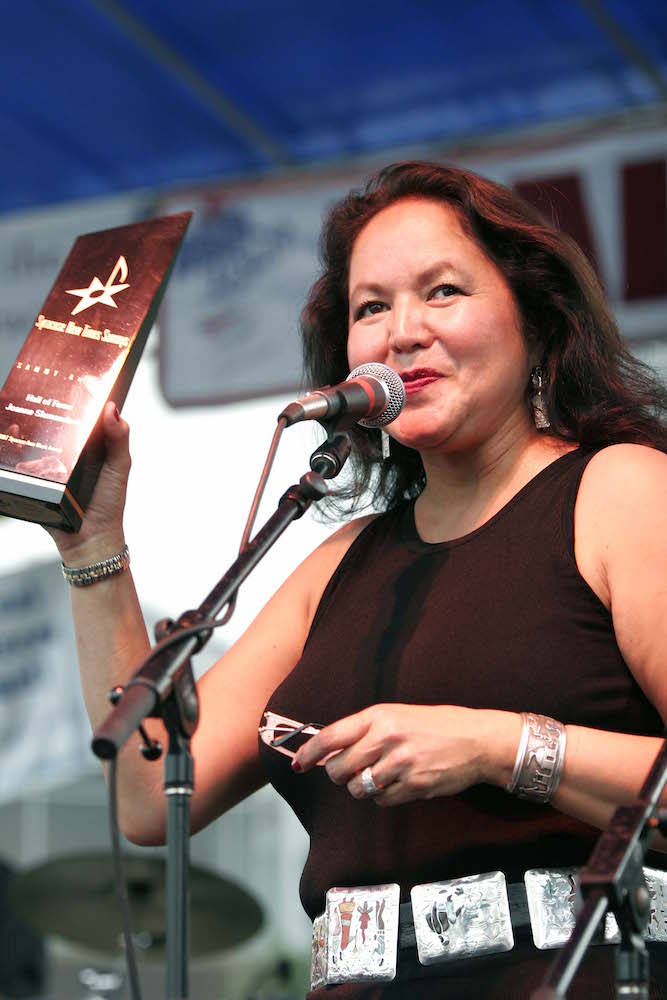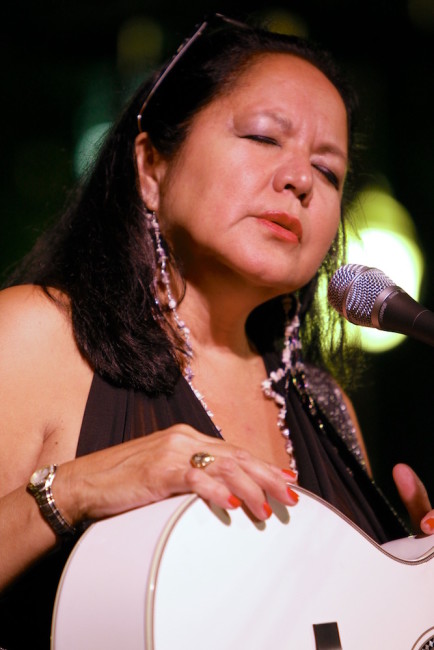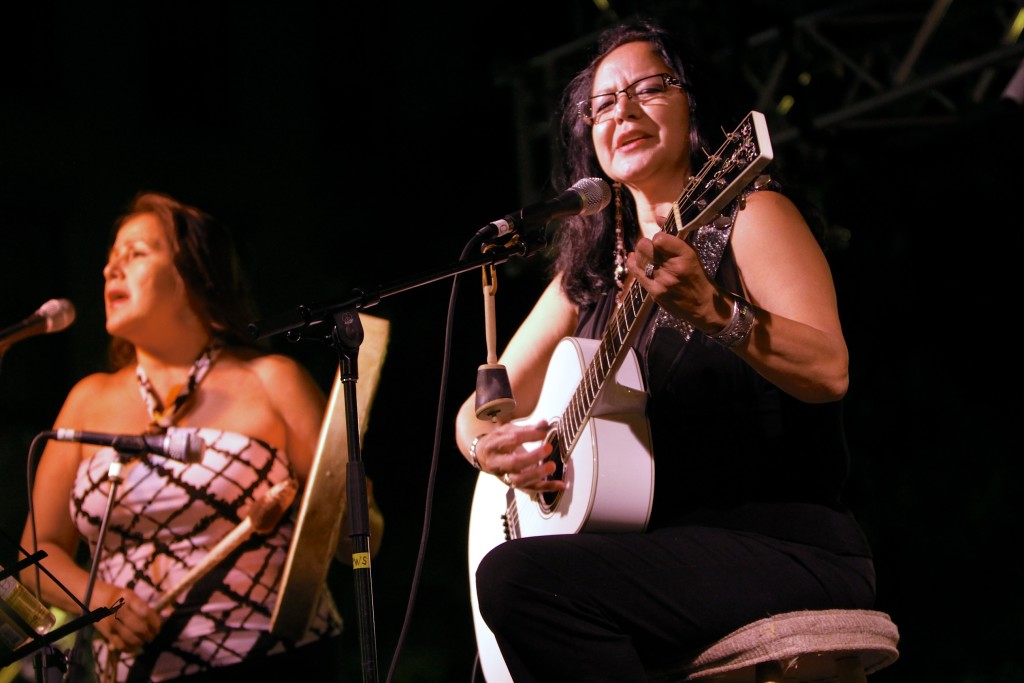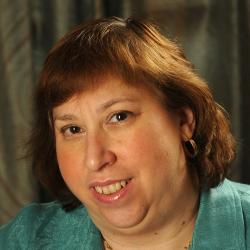As Grammy Award-winning musician and composer Joanne Shenandoah faces a life-threatening illness, she looks to her Native American heritage to describe her place in the universe.
“We flow, as does the cycle of creation, from conception to birth, infancy to youth and adulthood to our elder years,” she said this week via email through her husband, Doug George-Kanentiio. “While our physical selves are mortal we take the collective essence of our lives into the next reality and the ones beyond that to infinity.”

Michael Davis photo | Syracuse New Times
Shenandoah, 58, whose words and music call for justice, peace and respect for indigenous traditions, is awaiting a liver transplant after a bacterial infection last summer caused irreparable damage. Her family has set up a GoFundMe account to raise money for medical bills, estimated to be at least $450,000. As of Thursday, supporters had donated $31,935.
Shenandoah, 58, is a member of the Wolf Clan of the Oneida Nation. She lives in Oneida Castle with her husband George-Kanentiio, a member of the Mohawk Nation. Shenandoah, whose name in Oneida means “She Sings,” won a Grammy in the best Native American Music Album category in 2006 for her part in Sacred Ground: A Tribute to Mother Earth, a compilation album. She was also nominated for Grammy Awards in 2001 and 2005.
She has also received 14 Native American Music Awards — more than any other artist. “Native American music is very important for our survival: It has allowed Native people to survive,” Shenandoah told MTV in 2001. “You really don’t have to understand the words.”
Shenandoah hopes to receive a liver transplant at the Mayo Clinic in Florida. She is limiting her activity, and said last week she was not up to speaking with a reporter. “Overall, Jo is stable,” George-Kanentiio said.
Below are edited responses Shenandoah provided the Syracuse New Times through her husband.
How does your illness fit with your understanding of the life cycle? What can we all learn from physical frailty?
While our physical selves are mortal, we take the collective essence of our lives into the next reality and the ones beyond that to infinity. Discarding the body is inevitable, but the gift of life carries on.
I am not apprehensive about my life, as who I am and what I have done will be carried with me when I return home along the star path. My ancestors will journey with me. Those whom I have felt are with me now. This is our ancestral teaching. We have instructions, one of which is to take care of our health so we can live in happiness and fulfill our duties as human beings.
Many find solace and healing in your music. What’s it like to receive, rather than give, solace and healing?
Native spiritual leaders guided me to my life’s mission, which is to use music as a healing power, to carry songs that expressed our love for the natural world. Music can be one way by which humans communicate with other species and show our respect, dependency and admiration for this beautiful planet.
It is no mere chance that my music is sung within the universal keys that mark the rhythms of sun, moon and Earth. In this time of challenge, I have been amazed by how many people have shown that they do care for my well-being and this gives me a chance to express my gratitude. I find comfort in this.
It is our Iroquois way to call out when in need, as it gives our families and friends an opportunity to learn and to share, to use our collective powers to effect healing. The Haudenosaunee is an alliance created through the healing power of music, and without song and dance we could not live. My illness, during the dreamtime of winter, gives me an opportunity to reflect on this.

Michael Davis photo | Syracuse New Times
How is your condition affecting how you think about your musical career? How is it inspiring new songs?
I have had to take a break from touring. I was in South Korea this past October at a peace concert there and have a busy schedule crossing the continent and on to Europe once I am healed. There are so many opportunities for Native music, and I want to continue to perform whenever I can.
Every place I am, and whatever I do, presents me with new ideas and inspiration, whether it is the comforting touch of a nurse or the encouraging words from one of our traditional leaders. I have many new songs on my mind and others which are just over the crest of the next hill.
What do you make of the response to your illness?
It teaches me that there is great goodness in most people. It also has shown me that our connection with each other is the most powerful force in a human being’s life, that we need to show our love for others during times of stress.
For many, reacting to illness provides an opportunity to place life itself in perspective, to realize that love is more than a desire but an emotion that can best flourish when it is nurtured. True love is rooted in respect and sensitivity. Sometimes it is watered in tears, but it does not fade or diminish. It is what we carry to the next world. My music removes fear and relieves sadness. That is what my family and friends have done for me.
What song or phrase or prayer keeps you going during this difficult time?
I like “Aiionwatha Forgives” from my Peacemaker’s Journey album (2000) as it tells how one man, crippled by grief, overcame this and thereby helped create the Haudenosaunee, the world’s first united nations. In those moments, when he put aside vengeance and hatred, he showed all human beings that peace and healing is possible in the most tragic of circumstances.
That song summarizes what I have tried to do with my music: to effect healing, which is where I am now.
How to help: gofundme.com/joanneshenandoah.
Learn more about organ donations from the United Network for Organ Sharing: unos.org.



